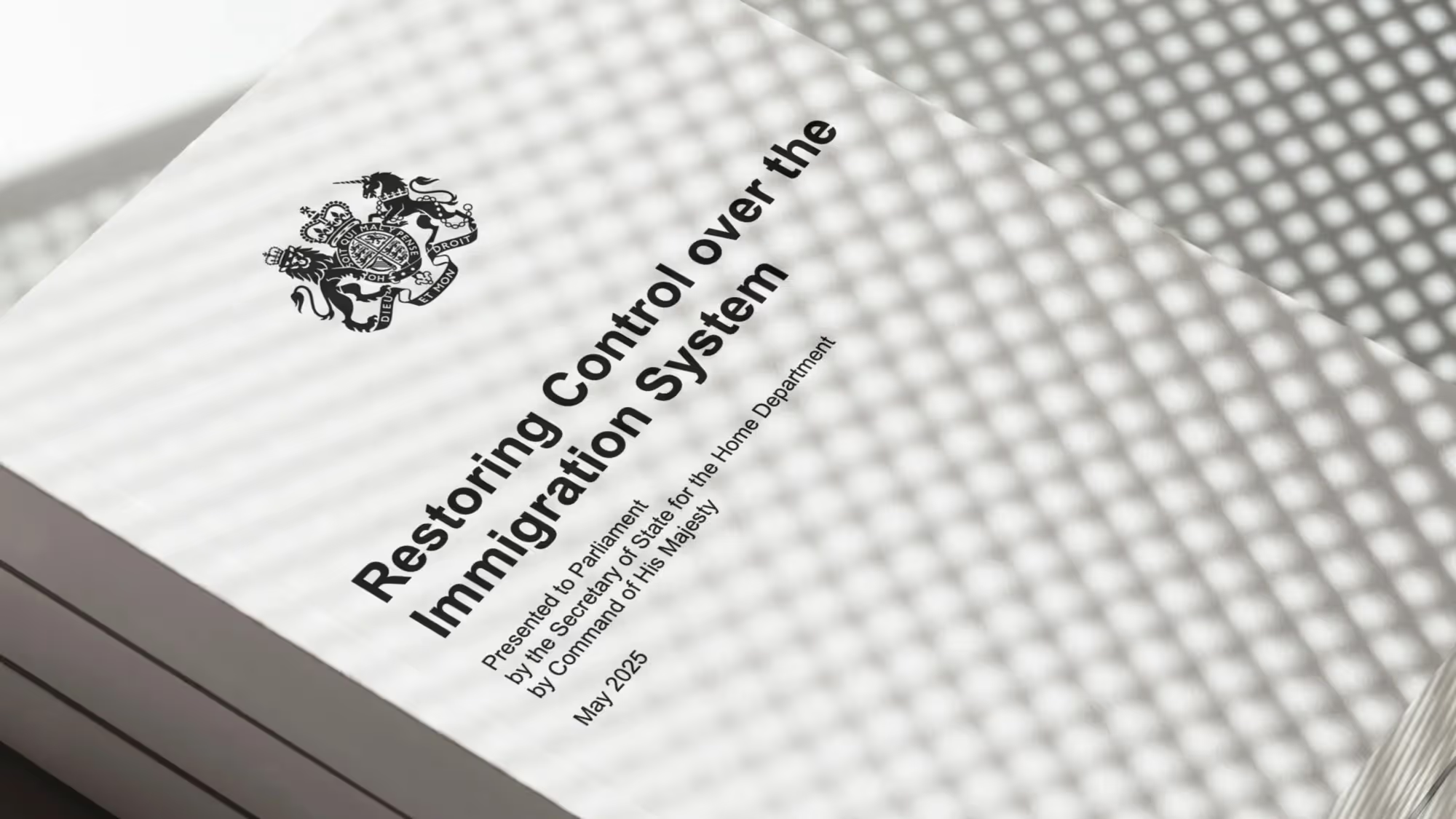

Keir Starmer has proposed stricter requirements for obtaining permanent residency (ILR) in the UK, tighter rules for family migration, and higher standards for English proficiency. But how will these changes affect professional and entrepreneurial visa holders — specifically, those applying through Global Talent and Innovator Founder routes? Here's a breakdown of what’s changing and how it may impact future applicants.
On 12 May 2025, UK Prime MinisterKeir Starmer and his government published a White Paper — a policy document outlining proposed legislation — titled Restoring Control over the Immigration System. It lays out a series of significant immigration reforms, introduced in response to record-high net migration figures in recent years (728,000 in 2024 and 906,000 the year before), mounting pressure from right-wing parties, and growing public demand for a “controlled and fair” system.
Perhaps the most striking proposal is to increase the minimum residence period required to obtain Indefinite Leave to Remain (ILR) from 5 to 10 years. This change would affect the majority of visa routes, especially “standard work visas” such as the Skilled Worker route.
Other proposed measures include:
In effect, the UK’s immigration system is becoming increasingly stratified — separating “privileged” migrants from “ordinary” ones. High-skilled professionals and recognised experts — including those applying through Global Talent, Innovator Founder, and HPI — are likely to receive continued or even expanded support. Meanwhile, standard work routes, family migration, and student visas are facing significantly tougher conditions.
The White Paper clearly states the government’s intention to expand and simplify access to the Global Talent visa for scientists, technologists, and designers. This is backed by a direct quote:
“We will… make it simpler and easier for top scientific and design talent to use our Global Talent visa.”
The Global Talent route itself remains unaffected — and is even set to become more accessible. Unlike the Skilled Worker visa, which requires employer sponsorship and strict salary thresholds, Global Talent continues to offer considerable flexibility: visa holders can work, start a business, or not be formally employed at all.
The current path to ILR and citizenship also remains in place: applicants endorsed as Exceptional Talent can apply for ILR after 3 years and for citizenship after one additional year (with a total stay of 5 years on visas entitling to citizenship). As of now, the White Paper does not announce any change to this timeline.
The White Paper proposes extending the ILR qualifying period to 10 years for most migrants, with exceptions for those who make a “significant contribution to the economy and society.” However, it does not specify which visa routes will qualify for this exception. While Global Talent has traditionally been treated as such a category, there’s no guarantee it will be excluded from the new 10-year rule.
It’s also unclear whether the new English language requirements will apply to dependants of Global Talent visa holders. The reform sets out a phased system for adult dependants — A1 at entry, A2 at renewal, and B2 for ILR — which currently does not apply to GTV dependants but could in the future.
Now is arguably the best time to apply for the Global Talent visa:
The Innovator Founder visa may also gain momentum. The White Paper notes plans to review and improve this route, particularly for students currently enrolled at UK universities who wish to remain and build a business:
“Review our Innovator Founder visa to ensure that it supports entrepreneurial talent currently studying at UK universities to move into the visa so that they can build their business and career in the UK.”
One of the most widely discussed elements of the reform is the proposed increase in the minimum residence period required to obtain Indefinite Leave to Remain (ILR) — from 5 years to 10. Currently, most visa holders — including those on the Skilled Worker route — are eligible to apply for ILR after 5 years, and for citizenship one year later. Under the new system, applicants would need to reside in the UK for a full 10 years before applying for ILR.
However, the government has indicated that it plans to introduce an “earned settlement” model, under which applicants could shorten this period by accumulating points for contributions to the UK economy and society. For example, creating jobs, paying taxes, volunteering, or participating in educational programs may help accelerate the path to ILR.
Even though the final criteria and timelines are still being developed, it’s already wise to start building a long-term presence strategy — demonstrating your value to the UK through employment, entrepreneurship, and civic or professional engagement.
The 2025 UK immigration reform is built around two main ideas: to reduce mass migration while preserving entry routes for individuals who can contribute meaningfully to the economy, science, and innovation. In this context, the Global Talent, Innovator Founder, and High Potential Individual visas remain strategic priorities, while most other routes — including Skilled Worker, family, and student visas — face tougher conditions.
Although many details are still to be confirmed, one thing is clear: the UK intends to focus on those who bring real value. That’s why it’s essential to start preparing your documentation, aligning your plans with the UK context, and clearly demonstrating how you will contribute to the country’s future.